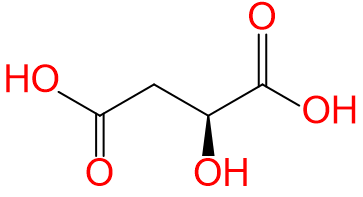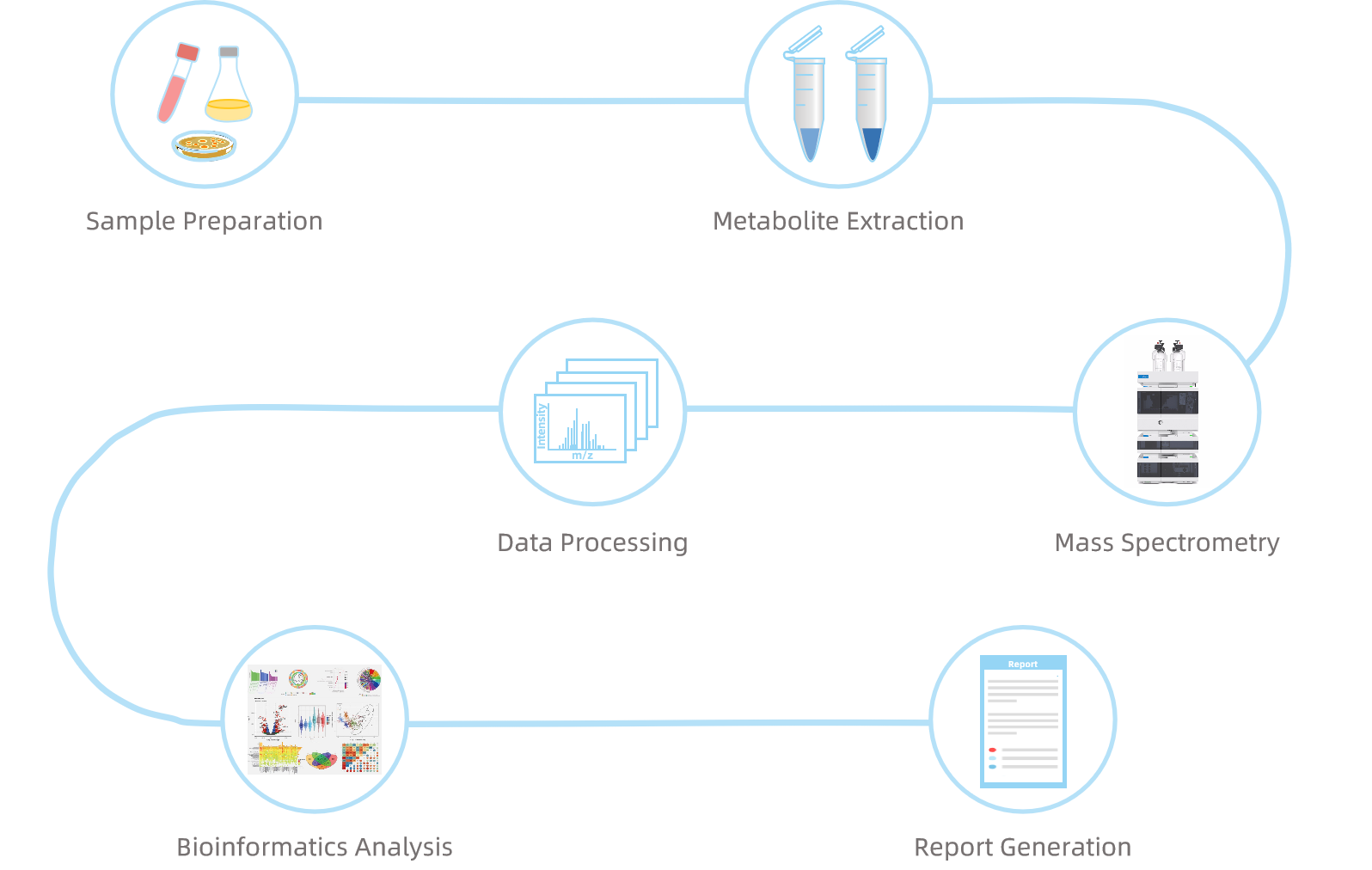L-malic Acid Analysis Service
- Accurately quantify L-malic acid levels in a variety of biological samples.
- Identify the metabolic pathways involved in L-malic acid metabolism.
- Discover potential biomarkers for disease diagnosis and prognosis.
- Clinical research
- Drug discovery and development
- Nutritional science
- Animal tissue ≥ 100 mg
- Plant tissue ≥ 200 mg
- Serum/ Plasma ≥ 200 μL
- Urine ≥ 2 mL
L-malic acid, a naturally occurring dicarboxylic acid, is integral to various biological and biochemical processes. Structurally, it has the molecular formula C₄H₆O₅ and features two carboxyl groups, which enhance its acidity and solubility in aqueous solutions. This compound is predominantly found in fruits, especially apples, where it contributes to their characteristic tart flavor and acts as a natural preservative. L-malic acid is used in a variety of industries, including food and beverage, pharmaceutical, and cosmetic sectors, due to its sour taste and antioxidant properties.
In biological systems, L-malic acid is a vital component of the tricarboxylic acid cycle (TCA), playing a crucial role in energy production and carbon dioxide transportation within cells. It serves as an intermediate that facilitates the conversion of carbohydrates into energy, emphasizing its importance in both plant metabolism and human physiology. Beyond its metabolic functions, L-malic acid is also associated with enhancing nutrient absorption and may play a role in various physiological processes, including muscle function and pH regulation. Abnormal levels of L-malic acid can indicate a variety of health conditions, including fibromyalgia, chronic fatigue syndrome, and liver disease. An accurate and robust analysis of L-malic acid is critical for clinical diagnosis, metabolic disorders, nutritional status, and food quality research.

Figure 1. The Structure of L-malic Acid
MtoZ Biolabs, an integrated Chromatography and Mass Spectrometry (MS) Services Provider, providing advanced proteomics, metabolomics, and biopharmaceutical analysis services to researchers in biochemistry, biotechnology, and biopharmaceutical fields. Our ultimate aim is to provide more rapid, high-throughput, and cost-effective analysis, with exceptional data quality and minimal sample consumption. MtoZ Biolabs provides comprehensive L-malic acid analysis service using advanced HPLC-MS/MS technologies. We can help researchers to:
Analysis Workflow

Service Advantages
1. Advance Analysis Platform
MtoZ Biolabs established an advanced L-malic acid analysis service platform, guaranteeing reliable, fast, and highly accurate analysis service.
2. One-Time-Charge
Our pricing is transparent, no hidden fees or additional costs.
3. High-Data-Quality
Deep data coverage with strict data quality control. AI-powered bioinformatics platform integrate all L-malic acid analysis service data providing clients with a comprehensive data report.
4. Fast Turnaround
The process from sample handling to report generation is efficient, shortening the analysis cycle.
Applications
Our L-malic acid analysis service can significantly contribute to various fields, including but not limited to:
Sample Submission Requirements
1. Sample Types
Serum, plasma, urine, tissues, and other biological samples. It is recommended to prepare at least 3 biological replicates for each sample type.
2. Sample Volume
3. Storage and Shipping
Samples should be stored at -80℃ and shipped with dry ice. Avoid repeated cycles of freezing and thawing
Note: Please provide details on sample collection and handling.
Deliverables
1. Comprehensive Experimental details (Materials, Instruments, and Methods, etc.)
2. Relevant Liquid Chromatography and Mass Spectrometry Parameters
3. Detailed Information on L-malic Acid
4. Raw Data
5. Custom Analysis Report
At MtoZ Biolabs, we dedicate ourselves to providing the most professional and comprehensive metabolomics services to accelerate your research. Trust us to deliver reliable results for your L-malic acid analysis needs.
How to order?







